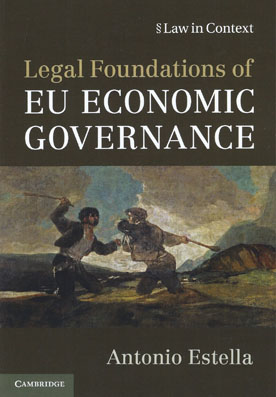
Since the economic crisis unfolded in 2008, the European Union economic governance framework has been profoundly transformed from a legal perspective. The EU has adopted new tools, institutions and rules to tackle the changes and is arguably better prepared to combat any future crises.
This book analyses the basic legal framework of EU economic governance and considers the economic underpinnings which underlie legal institutions in this area. It uses analytical dialectics as a method of analysis and the paradigm of 'law as credibility' as the main model through which the substantive parts of EU economic governance are accounted for.
Important issues such as access, exit and expulsion from the euro, the independence of the European Central Bank, the Stability and Growth Pact, bail-outs to member states, and the EU's economic strategy are addressed in a clear, critical and innovative way.